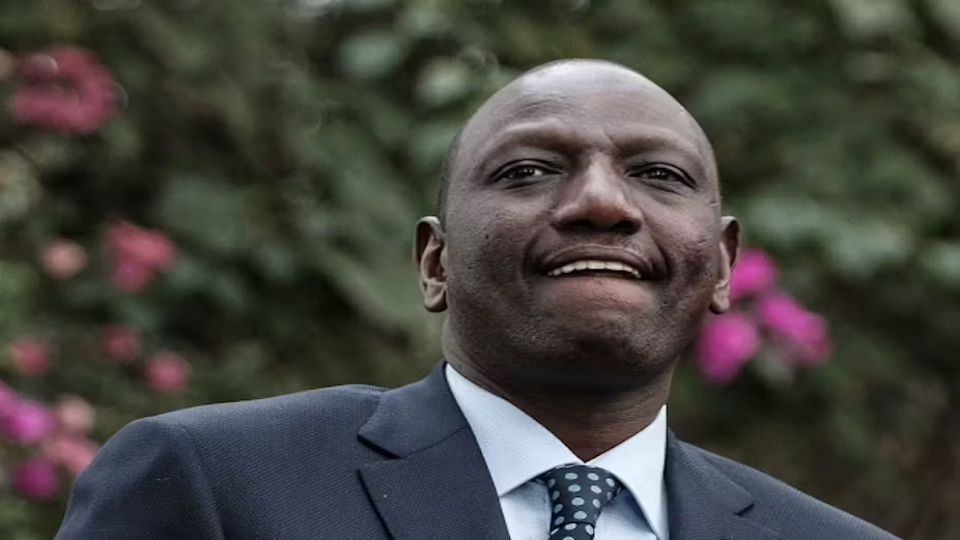High Court Halts President Ruto’s Anti-Corruption Taskforce Amid Legal Challenge
On August 20, 2025, the High Court in Nairobi issued a conservatory order suspending President William Ruto’s recently established Multi-Agency Team on War Against Corruption (MAT-WAC), pending a legal challenge questioning its constitutionality. The ruling, delivered by Justice Bahati Mwamuye, has sparked significant debate about the government’s approach to combating corruption in Kenya, a nation where graft remains a persistent challenge. The decision halts the operations of the 11-member taskforce, which was announced on August 18, 2025, and chaired by the Executive Office of the President, until the court hears and determines the case.
The legal challenge was initiated by four petitioners: Dr. Magare Gikenyi, a Nakuru-based surgeon, Eliud Karanja Matindi, Philemon Abuga Nyakundi, and Dishon Keroti Mogire. They argue that President Ruto’s executive proclamation establishing MAT-WAC is unconstitutional and oversteps the authority of existing independent bodies, particularly the Ethics and Anti-Corruption Commission (EACC) and the Office of the Director of Public Prosecutions (ODPP). The petitioners contend that the Constitution, under Article 79, explicitly mandates the EACC to combat corruption, and Article 132(4) does not grant the President the authority to create a new anti-corruption agency. They describe the President’s powers in this regard as “imaginary hot-air mirage powers” that lack a constitutional basis.
The petitioners further argue that integrating agencies such as the Central Bank of Kenya (CBK), the National Intelligence Service (NIS), and the Directorate of Criminal Investigations (DCI) into MAT-WAC undermines the independence of these institutions and the EACC and ODPP. They express concern that the taskforce, by being domiciled under the Executive Office of the President, risks shielding the executive from scrutiny, especially given recent Auditor General reports implicating the Presidency in corruption scandals, such as the Sh104 billion Social Health Authority (SHA) procurement controversy and issues surrounding the e-Citizen convenience fee. The petitioners warn that the taskforce’s operations could lead to a duplication of duties, wastage of public resources, and potential political witch-hunts, particularly as Kenya approaches a politically charged season ahead of the 2027 elections.
The court’s conservatory order specifically stays the operation and implementation of the Presidential Proclamation dated August 18, 2025, prohibiting the taskforce from compiling reports, making recommendations, or acting on any directives until the case is resolved. Justice Mwamuye directed the petitioners to serve the respondents, including the Asset Recovery Agency, Kenya Revenue Authority (KRA), CBK, and Public Procurement Regulatory Authority (PPRA), immediately, with responses due by August 29, 2025. A virtual hearing is scheduled for September 9, 2025, to confirm compliance and establish a timeline for an expedited ruling, expected within 90 days, by December 4, 2025. This timeline underscores the court’s recognition of the case’s significance, as it could set a precedent regarding presidential powers and the autonomy of anti-corruption institutions.
President Ruto established MAT-WAC to foster synergy among state institutions, including the EACC, ODPP, DCI, NIS, CBK, KRA, PPRA, and others, with the Attorney General’s office serving as the secretariat. The taskforce was intended to enhance collaboration, share intelligence, mobilize resources, raise public awareness, and work with international partners to recover stolen assets. Ruto announced its formation shortly after criticizing Members of Parliament (MPs) for alleged corruption during a joint parliamentary group meeting with Kenya Kwanza and ODM legislators on August 18, 2025, in Karen, Nairobi. He accused some MPs of accepting bribes, including claims that certain legislators received millions of shillings to influence votes on an anti-money laundering law. At the Biennial Devolution Conference in Homa Bay on August 13, 2025, Ruto further alleged that parliamentary committees were engaging in extortion, undermining public trust in governance.
The suspension of MAT-WAC is not the first time President Ruto’s taskforces have faced legal challenges. In July 2024, the High Court suspended a presidential taskforce on the forensic audit of public debt, following a petition by Dr. Gikenyi and Mr. Matindi, who argued it usurped the Auditor General’s constitutional mandate. The Law Society of Kenya (LSK) also rejected appointments to that taskforce, citing constitutional concerns, a stance echoed by some critics of MAT-WAC. Former Chief Justice David Maraga and Ruto’s former Senior Economic Advisor have publicly dismissed the anti-corruption taskforce as insincere and ineffective, with Maraga alleging that Ruto orchestrated large-scale bribery during the October 2024 impeachment of former Deputy President Rigathi Gachagua.
Ruto has repeatedly emphasized a zero-tolerance stance on corruption, urging the EACC and other institutions to act decisively without interference. However, critics, including the petitioners, argue that the creation of MAT-WAC risks blurring institutional boundaries and weakening the separation of powers. They point to the EACC’s existing mandate to investigate corruption, prevent unethical conduct, and recover public property, asserting that any coordination in the fight against corruption must be legally anchored and led by constitutionally established bodies.
The legal battle over MAT-WAC highlights broader tensions in Kenya’s anti-corruption efforts. The EACC has faced challenges in securing prosecutions, with a June 2025 report noting that only four of 44 files forwarded to the ODPP between January and March 2025 were approved for prosecution. High-profile graft cases, such as those involving former governors and the Sh7.6 billion case against oil tycoon Yagnesh Devani, have collapsed due to issues like witness reluctance or procedural delays. Ruto has also criticized the Judiciary for granting anticipatory bail, which he claims shields corrupt individuals, and the ODPP for inefficiencies in handling cases.
As the case awaits a full hearing, the suspension of MAT-WAC raises questions about the future of Ruto’s anti-corruption strategy and the balance of power between the executive and independent institutions. The outcome could redefine the scope of presidential authority and the operational framework for combating graft in Kenya, a country where corruption continues to drain public resources, with an estimated Sh194 billion lost annually, according to the African Development Bank.


